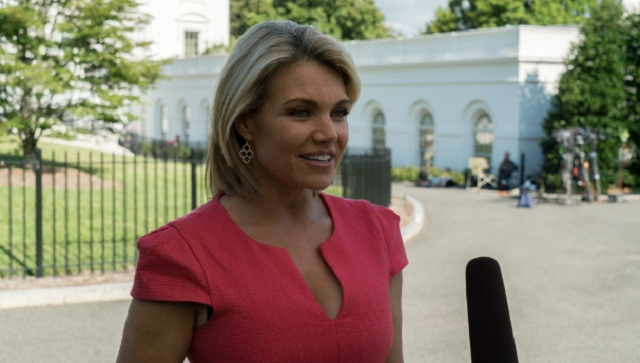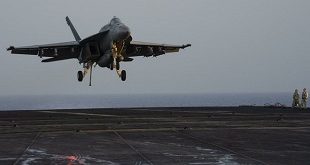
The Pentagon reacted with more equanimity, with a spokesman insisting that the US military remains “fully prepared” to react to “anything that comes our way.”
The United States has long accused Russia of breaching the INF treaty and, while it is modernizing its own nuclear arsenal, says it remains in compliance with the terms of the Cold War accord.
The spat came as relations between the powers lie frozen at post-Cold War lows over the Syria and Ukraine conflicts and accusations that Moscow interfered in the US presidential election in 2016.
Also Thursday, the US formally approved the sale of Javelin anti-tank missiles to Ukraine, which is fighting a Russian-backed insurgency in the east of the country.
The Defense Security Cooperation Agency said Ukraine has asked President Donald Trump’s US administration for permission to buy 210 missiles and 37 launchers at a cost of around $47 million.
Meanwhile, Moscow’s ambassador to the US Anatoly Antonov said Washington’s last-minute pullout from cybersecurity talks in Geneva last month was an “unfriendly step… that gave the impression of having been pre-planned and leading to the further degradation of bilateral relations”.
– ‘Fantastic’ submarines –
In his nearly two hour speech, Putin showed tests of a new missile system he said could fly at 20 times the speed of sound and maneuver up and down, and is not owned by any other country.
“This makes it absolutely invincible for any forms of air and missile defense,” he boasted, calling it an “ideal weapon.”
Russia has also developed unmanned underwater devices that move much faster than submarines and torpedoes and can carry nuclear warheads, Putin said, adding: “It’s just fantastic!”
Defense Minister Sergei Shoigu said Russian arms would be able to “overcome all existing anti-missile systems” such as those the US intends to deploy in eastern Europe and South Korea.
“This anti-missile ‘umbrella’ turns out to be a bit ‘leaky’,” he said.
– ‘Unacceptable’ poverty –
Putin, who has led Russia for almost two decades and is seeking a historic fourth Kremlin term that would extend his rule to 2024, also laid out a number of domestic measures in the speech.
He has refused to take part in TV debates with other candidates, but the address suggested cutting poverty and improving the environment would be among the top goals of his expected new six-year term.
The 65-year-old vowed to cut the country’s “unacceptable” poverty rate in half over six years, but said 22 million fewer Russians were now living below the poverty line than when he was first elected president.
Although Putin was given an ecstatic reception by his audience, some online comments were less than complimentary.
“The old man only perked up when he was talking about how he can destroy the world. A moment of truth!” former Kremlin advisor Gleb Pavlovsky said on social media.
Despite Putin’s campaign promises when he returned to the Kremlin in 2012 after four years as prime minister, his last term was marked by a fall in living standards and Russia’s international isolation.
Boosted by a slavish media and foreign military adventures such as the annexation of Crimea in 2014, his approval rating remains sky-high and official polls suggest he will take almost 70 percent of the vote.
 The Independent Uganda: You get the Truth we Pay the Price
The Independent Uganda: You get the Truth we Pay the Price


